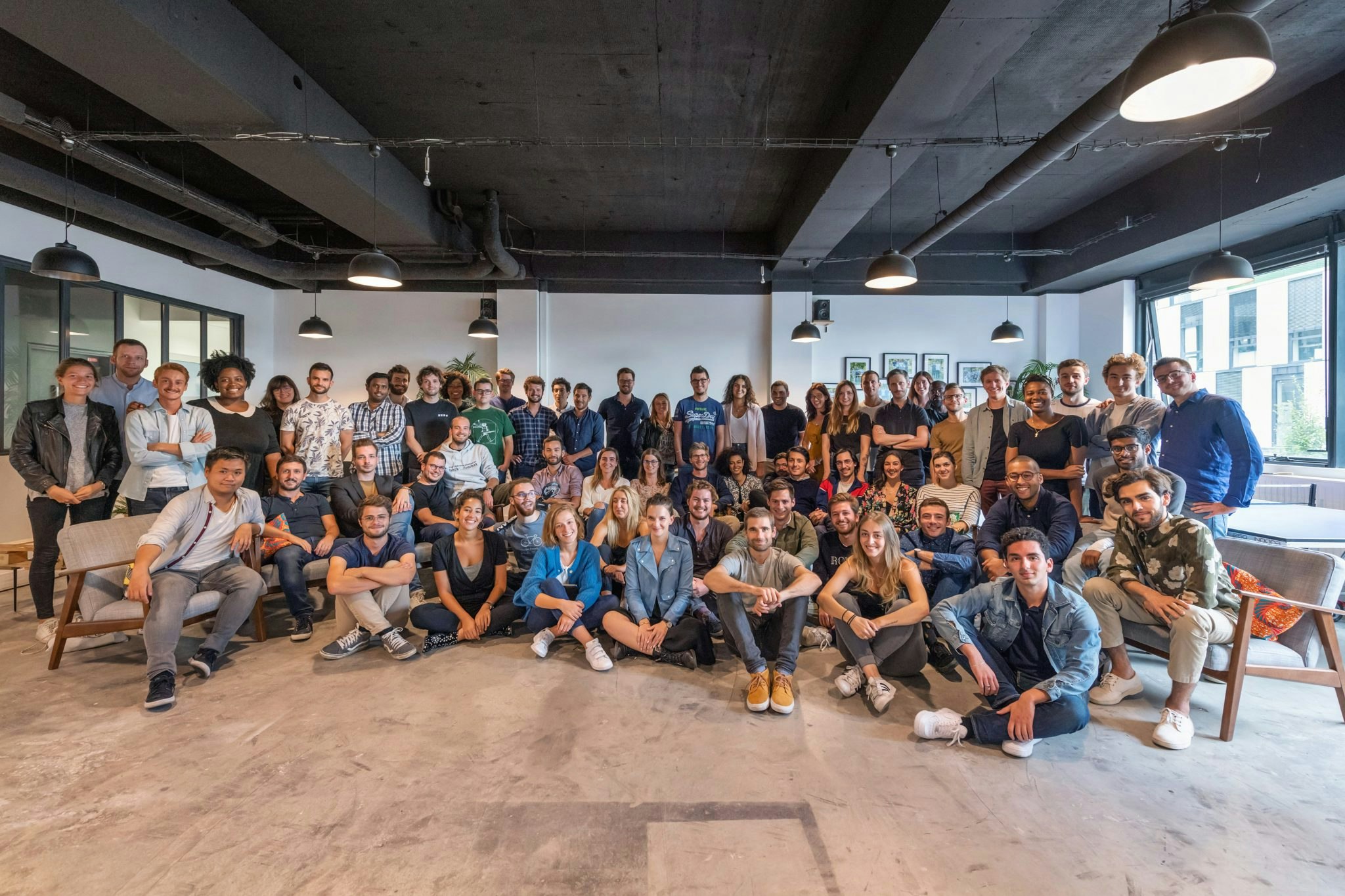2021 saw some staggering numbers — VC investment nearly doubled with around 600 new unicorns in Europe compared to 167 in 2020. But fast forward a year, and we find ourselves in a tech downturn.
“From my understanding, share prices and market cap are declining a lot quicker than many anticipated,” says Matthew Ellis, founder of embedded talent solution Scede. “Likely due to high interest rates, the geopolitical landscape and a macroeconomy that is fast-changing.”
But while many startups are making cutbacks and layoffs are hitting headlines, over a third of respondents to a Sifted survey have made no change to hiring plans — or have said they’re hiring more than before.
So how can startups scale in a downturn? We asked the experts.
One startup’s downturn is another’s upturn
For Ellis, the most important thing for startups to remember is to keep the downturn in perspective. He says downturns are cyclical and while there might be hurdles as the market adjusts, there is still venture capital being invested.
“It feels like we’re going through what I see as more of a normalisation period, albeit with a very steep transition. I think the waters will continue to be choppy for a little while,” he tells Sifted. “But I’ve also witnessed turbulent markets in different parts of my career and more often than not these types of events are a natural part of a business’ growth journey.”
And investment opportunities translate to scaling opportunities. Charlotte Lafferty, head of talent acquisition at fintech Mollie, agrees, adding some companies will be able to build up success through the downturn.
It’s super noisy out there right now and it can be tempting to panic or be led by how other organisations in your field might be reacting or adapting to this time
“One person’s downturn is another person’s upturn,” she says. “There are still opportunities and we’re seeing with Mollie there’s viable businesses that will still continue to grow.”
While VCs are largely moving away from hypergrowth and towards sustainable growth and long-term profitability, Ellis says startups should focus on themselves and make scaling plans based on their own internal variables.
“It’s super noisy out there right now and it can be tempting to panic or be led by how other organisations in your field might be reacting or adapting to this time,” he says. “But no one really knows what’s going on inside your specific business and your business, your goals, your financial situation, your data points, your milestones are all unique.”
This means some startups will decide to freeze hiring to reduce spending, while others will make hiring a priority.
“If you’ve decided to pause hiring based on your business and your metrics, then that’s absolutely fine,” says Ellis. “And if you’re continuing to grow at pace that’s also 100% fine.”
As stocks dip, take stock of your startup
If your startup is still scaling, Amandeep Shergill, director of tech recruiting at Automattic, a company that develops publishing platforms like WordPress.com, Tumblr and Longreads, says the downturn is an opportunity for companies to reflect on their hiring strategies.
“Companies have been hiring at unprecedented rates, especially in the tech industry,” he says. “So I think it’s time for a lot of these companies, not all, but a lot of these companies to take stock and figure out what they’ve been doing.”
You obviously want to come out of a downturn a lot stronger than you went in
Shaun Rutland, CEO and cofounder of gaming studio Hutch, says there are two basic things to focus on during the downturn depending on your business life cycle. If you want to extend your runway, you should prioritise your core business functions and if you’re trying to get profit quicker, think about M&A opportunities.
“You obviously want to come out of a downturn a lot stronger than you went in,” he says. “Just surviving in my view isn’t good enough and you run the risk of becoming a zombie business, which gets by but doesn’t have growth opportunities in the future.”
Ellis says while you can’t control the market, you can reevaluate the way your startup operates, helping to prepare you for future upturns — something Scede has taken advantage of.
“We’ve actually rethought our business model and services through difficult times or quieter times,” he says. “If you’re not all guns scaling from a headcount perspective, then you can absolutely look at things from an operational perspective.”
It’s also a chance to review your employer value positioning, which is an indication of whether your offering as an employer matches the talent you want to hire.
“Really understand what is your employer value proposition,” says Lafferty. “Even if there is a downturn and people choose to stay put… it becomes tough to attract people out of current jobs, so it’s important we are authentic and open about what makes our culture amazing.”
Evaluate — and reevaluate
For Automattic, reevaluation has meant it wants to put more focus on talent management and employee retention.
“We grew by a huge amount over the last 18 months or so, we went from about 1,300 to over 2,000,” says Shergill. “Now we're just taking a little bit of stock — we’re not pausing, we’re not slowing down… but from our perspective, what we actually want to do and what we’ve realised is we want to put the focus back on the people we’ve hired.”
For Mollie, Lafferty adds it’s not just about investing in talent acquisition: “All too often you’ll see companies over investing in TA and tending to under invest in HR and learning and development, but actually my piece of advice would be to invest in that earlier than you think you need to.”
If you are still scaling, do so at a rate that is sensible to you and where you want to get to in the next six to 12 months — and keep a close eye on how you’re progressing
Ellis says it’s important to evaluate — and reevaluate — your plans and says you should lean on your wider leadership team, advisors, investors, mentors, peer groups or partners.
“If you are still scaling, do so at a rate that is sensible to you and where you want to get to in the next six to twelve months — and keep a close eye on how you’re progressing towards your goals as the market changes,” he says, adding that in some instances it may be more prudent to hire freelance workers or contractors to plug any skills or capacity gaps you have for a defined period of time.
Hire sustainably
When it comes to sustainable hiring, Lafferty says the most important thing is to have a plan. The talent acquisition team should make that plan in close collaboration with other teams, including the leadership team.
“Understand what your business needs and work really closely with your business to understand what is the headcount goal? What are we trying to achieve here and when do we need to achieve it?” she says.
Work with embedded recruiters. This is a model which is a lot more sustainable than continuing to work solely with recruiting agencies
Shergill also says it’s important to have “an endgame” in sight, and adds working with talent solutions — like Scede — can make hiring during a downturn more sustainable and flexible. Scede, for example, offers different models such as embedded talent partnerships where a ready-made team of recruiters join your startup or scaleup for a pre-defined period of time.
“Work with embedded recruiters,” he says. “This is a model which is a lot more sustainable than continuing to work solely with recruiting agencies.”
“What we’re seeing right now is more companies seek flexible ways to add recruitment capacity and capability to their internal teams,” says Ellis. “Someone who has been there and done it can help you avoid costly mistakes in hiring and set up your recruitment process and talent infrastructure for the long term scalability of your company.”
Find out how Scede could help your startup scale efficiently through the current climate, or get in touch with the team directly at scede.io



